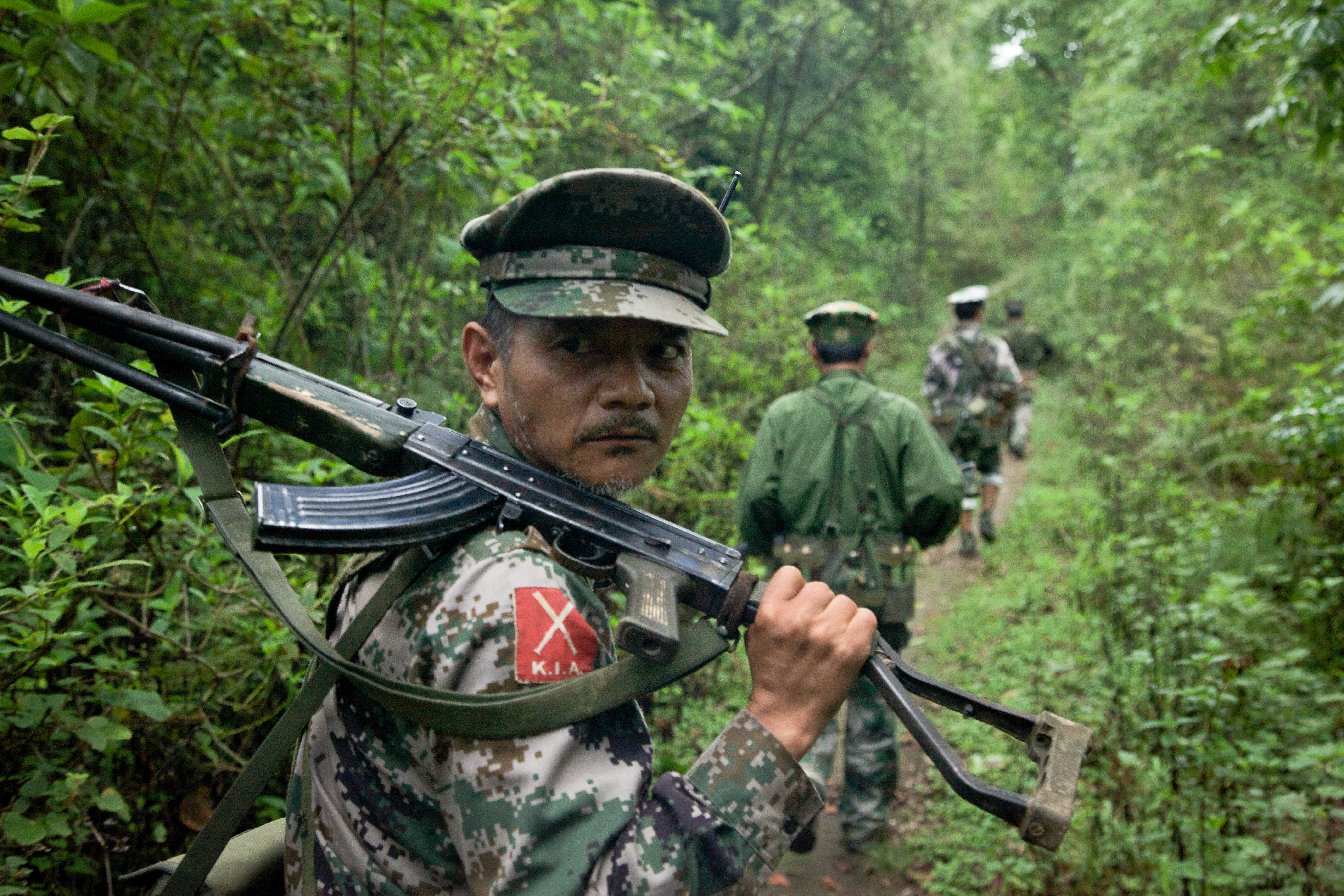
After decades of isolation and repressive military rule, Burma is unexpectedly open for business. American companies ranging from Google to Goldman Sachs have been scrambling to set up shop in the capital, Rangoon, now known as Yangon. The modest reforms embraced by Burma's generals have been enthusiastically applauded by the Obama administration, but as Pulitzer Center grantees Jason Motlagh and Steve Sapienza report for Al Jazeera's People & Power, the rush to do business has effectively diverted attention from the festering civil war in the Kachin state on Burma's northern border with China.
"So far, more than 75,000 ethnic Kachin civilians have been driven from their ancestral lands. Human rights groups allege the Burmese army is intentionally attacking civilian areas, with widespread evidence of torture, rape, forced conscription and summary executions. Both sides employ child soldiers and continue to sow the ground with landmines." With frontline footage, Steve and Jason document a hidden crisis that has significant implications for both U.S. policymakers and businesses.
* * *
Pulitzer Center grantee Mujib Mashal is working on a project for TIME magazine about water resources in Afghanistan. Traveling with a district governor in Helmand province, Mujib recently survived a close encounter with a roadside IED, an improvised explosive device. All in a day's work, according to Mujib, who was not injured in the attack (neither was the governor, the intended target).
We do not take lightly the implications of putting journalists in harm's way. Mujib has extensive experience in Afghanistan and understands well that any kind of on-the-ground reporting in this unstable region can be extremely hazardous. Afghanistan is a vitally important story for Americans; so too is the hidden war in Burma, and we are deeply indebted to journalists like Mujib, Jason and Steve who have the savvy and skill to report stories from difficult places.
Until next week,
Tom Hundley
Senior Editor



